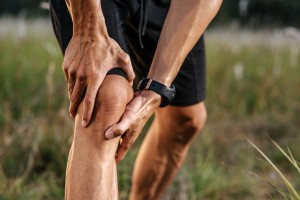Knee joint pain can be quite discomforting, but there are several home remedies you can try to alleviate it. However, it's important to note that severe or persistent knee pain should be evaluated by a healthcare professional to rule out serious underlying conditions. Here are some home remedies that may help:
RICE Therapy: Rest, Ice, Compression, and Elevation. Rest your knee, apply ice packs for 15-20 minutes several times a day, use a compression bandage to reduce swelling, and elevate your leg to reduce inflammation.
Warm Compress: Alternating between ice packs and warm compresses can help alleviate pain and promote circulation.
Exercise: Gentle exercises that strengthen the muscles around the knee can help support the joint and alleviate pain. Examples include leg raises, hamstring stretches, and quad sets.
Maintain a Healthy Weight: Excess weight can put strain on the knees, exacerbating pain. Maintain a healthy weight through diet and exercise to reduce pressure on the joints.
Turmeric: Turmeric contains curcumin, which has anti-inflammatory properties. Adding turmeric to your diet or taking turmeric supplements may help reduce knee pain.
Epsom Salt Soak: Soaking your knees in warm water with Epsom salt may help alleviate pain and reduce inflammation.
Massage: Gentle massage around the knee joint can help improve circulation, reduce stiffness, and alleviate pain.
Acupuncture: Some people find relief from knee pain through acupuncture, a practice that involves inserting thin needles into specific points on the body to stimulate healing.
Essential Oils: Certain essential oils like peppermint, eucalyptus, and lavender may have pain-relieving and anti-inflammatory properties. Dilute them with a carrier oil and massage onto the knee area.
Omega-3 Fatty Acids: Foods rich in omega-3 fatty acids, such as fatty fish (salmon, mackerel, sardines), flaxseeds, and walnuts, may help reduce inflammation and alleviate knee pain.
Remember to consult with a healthcare professional before trying any new remedy, especially if you have underlying health conditions or if the pain is severe or persistent.
Dr. Suman Setia BAMS DNHE PGDHHM

